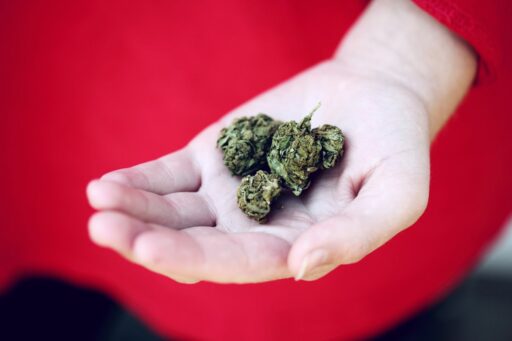The legalization of marijuana in Illinois represents a significant shift in the state’s approach to cannabis regulation. In 2020, Illinois joined a growing number of states that have reformed their marijuana laws, reflecting changing public attitudes and an evolving legal landscape. This article takes a deep dive into the nuances of Illinois’ marijuana laws, exploring the historical context, current regulations, and the wider social and economic implications of these changes.
Key Takeaways
- Illinois decriminalized possession of small amounts of marijuana, aligning with a trend seen in 22 states and the District of Columbia.
- The Illinois law of 2020 reflects a significant shift towards the legalization of recreational marijuana use, similar to policies in 10 other states and D.C.
- Decriminalization in Illinois includes reforms that have reduced penalties, removed criminal records for possession of 10 grams or less, and impacted law enforcement practices.
- The legalization of marijuana in Illinois has opened discussions on public health, safety, economic benefits, and the potential for marijuana tourism.
- Looking ahead, Illinois’ marijuana legislation may continue to evolve, with ongoing debates and advocacy influencing potential changes and reforms.
The Evolution of Marijuana Decriminalization in Illinois

Historical Context and Legislative Changes
The journey towards the decriminalization of marijuana in Illinois has been marked by significant legislative shifts. The Marijuana Tax Act of 1937 set the stage for federal prohibition, which was later mirrored by state laws. However, a shift in public perception and scientific understanding has led to a gradual dismantling of these restrictions.
Recent legislative updates have seen Illinois take progressive steps towards reforming its marijuana laws. The state has recognized the medical benefits of cannabis, leading to amendments in legislation such as the Compassionate Use of Medical Cannabis Program Act. This act, among others, has been pivotal in redefining the legal landscape of marijuana use in Illinois.
The adoption of state laws has allowed Illinois to explore regulatory frameworks independent of federal oversight, granting the state autonomy in managing the use and distribution of marijuana.
A comparison with the National Conference of State Legislatures data reveals that Illinois is not alone in this endeavor. As of December 2018, 22 states and the District of Columbia have decriminalized small amounts of marijuana, signaling a broader trend towards acceptance and regulation rather than outright prohibition.
Comparison with Other States
When examining the landscape of marijuana decriminalization across the United States, Illinois is not alone in its efforts. As of the latest data, 22 states and the District of Columbia have decriminalized small amounts of marijuana, reflecting a significant shift in the national approach to cannabis policy. This list includes states like California, Colorado, and Michigan, which have also legalized recreational adult-use marijuana.
In contrast, states such as New York, Pennsylvania, and West Virginia have attempted to pass similar measures, but as of December 2018, none have succeeded. This patchwork of laws creates a complex legal environment for citizens and lawmakers alike.
| State | Decriminalized | Recreational Use Legalized |
|---|---|---|
| Alaska | Yes | Yes |
| California | Yes | Yes |
| Colorado | Yes | Yes |
| Illinois | Yes | No |
| Michigan | Yes | Yes |
| New York | No | No |
The evolution of marijuana laws in various states is indicative of a broader cultural and legal shift towards more lenient policies concerning cannabis.
Impact on Law Enforcement and Criminal Justice
The decriminalization of marijuana in Illinois has led to a significant shift in law enforcement priorities and practices. Arrests for simple possession have notably decreased, allowing police resources to be redirected towards more serious offenses. However, this shift has not been without its challenges.
- The motivation to serve among law enforcement officers has been affected by the changing legal landscape.
- There is a growing debate on whether off-duty police officers should be permitted to use marijuana, reflecting broader societal shifts.
- Institutional incentives and judicial doctrines that predate decriminalization still drive a considerable number of marijuana-related arrests.
The complexity of aligning new marijuana laws with existing law enforcement protocols has created a nuanced landscape for officers and the justice system at large.
The table below outlines the changes in law enforcement focus post-decriminalization:
| Year | Marijuana Possession Arrests | Other Drug-Related Arrests | Serious Crime Arrests |
|---|---|---|---|
| 2019 | High | Moderate | Moderate |
| 2020 | Low | Moderate | High |
While the decriminalization of marijuana has eased the burden on the criminal justice system, it has also introduced new complexities, such as the management of fines and supervision for those unable to comply with the new regulations.
Understanding Illinois’ Marijuana Laws in 2020

Decriminalization of Small Amounts
In 2020, Illinois took a significant step towards altering its approach to marijuana by decriminalizing the possession of small amounts. This shift marked a move away from punitive criminal charges towards civil infractions for minor possession cases. The change reflects a broader trend across the United States, where numerous states have reformed their marijuana laws to reduce the burden on the criminal justice system and individuals alike.
The decriminalization in Illinois aligns with a national movement to mitigate the consequences of minor drug offenses and focus on more serious crimes.
The specifics of Illinois’ decriminalization policy are as follows:
- Possession of up to 10 grams of marijuana is considered a civil law violation.
- Fines for first-time possession range from $100 to $200.
- Subsequent violations may result in increased fines.
The policy also includes provisions for drug education and treatment programs, funded by the fines collected, which aim to address substance abuse issues more constructively.
Regulations Surrounding Recreational Use
In 2020, Illinois took a significant step by legalizing recreational marijuana use for adults, aligning with a growing number of states that have shifted their stance on cannabis. This move has introduced a set of regulations designed to govern the responsible use and sale of marijuana within the state.
- It’s legal to buy and smoke recreational marijuana in Illinois, as per the new era of pot policy.
- Local communities have the authority to impose regulations on the marijuana industry, including aspects such as location, size, and hours of operation of dispensaries.
- Businesses must adhere to strict guidelines regarding signage, security, and the types of goods sold.
The state’s approach aims to balance the commercial interests of the marijuana industry with public health and safety concerns.
While the legalization marks a progressive step, it also comes with a complex web of local ordinances that businesses and consumers must navigate. Compliance with these regulations is crucial for the sustained growth and acceptance of the marijuana market in Illinois.
Penalties and Fines for Violations
In Illinois, the decriminalization of marijuana has led to a shift in how violations are penalized. Fines have become the primary form of punishment, particularly for minor offenses. This approach aims to reduce the burden on the criminal justice system and avoid the long-term consequences of a criminal record for individuals caught with small amounts of cannabis.
The structure of fines is tiered, reflecting the severity of the violation. For instance, possession of small amounts of marijuana may result in a relatively minor fine, while more significant breaches, such as possession with intent to distribute, carry heftier penalties. Below is a simplified breakdown of potential fines for various infractions:
- Possession of 10 grams or less: Fine up to $200
- Second offense: Increased fine
- Possession with intent to distribute: Substantial fines and possible jail time
It’s important to note that inability to pay fines can lead to further legal complications, disproportionately affecting disadvantaged individuals. The system, while avoiding incarceration for minor offenses, may inadvertently create a cycle of debt and legal entanglements for those unable to afford penalties.
The nuanced application of fines serves as a deterrent while acknowledging the need for a more progressive approach to marijuana-related offenses. However, the reliance on fines also raises concerns about the potential for a regressive impact on the less affluent sectors of society.
The Social and Economic Implications of Legalizing Marijuana

Effects on Public Health and Safety
The legalization of marijuana in Illinois has brought forth significant discussions regarding its impact on public health and safety. While proponents argue that regulated marijuana reduces the harm associated with illicit drug use, opponents express concerns over potential increases in drug-related morbidity and mortality.
- Illicit drug use is linked to higher mortality rates, physical diseases, mental illness, and increased crime.
- Legalization aims to mitigate these risks by providing safer, regulated access to marijuana.
The shift from illicit to legal marijuana markets is expected to reduce the social costs and public safety threats posed by drug use.
However, the long-term effects on public health are still under scrutiny, with ongoing studies examining the relationship between marijuana use and various health outcomes, such as the potential for increased car crashes due to impaired driving.
Economic Benefits and Challenges
The legalization of marijuana in Illinois has brought about a complex mix of economic benefits and challenges. The state has seen a surge in tax revenue from the sale of recreational marijuana, which has been allocated to various public services and initiatives. However, the industry’s growth has also led to increased competition and market saturation, raising concerns about the long-term viability of small businesses in the sector.
- Tax revenue generation for public services
- Job creation in cultivation, distribution, and retail
- Investment in community development and education programs
- Market competition and saturation
- Regulatory compliance costs for businesses
The economic landscape is continually evolving as the state adjusts regulations and market dynamics shift. The balance between fostering a thriving marijuana industry and ensuring responsible growth is delicate and requires ongoing attention from policymakers.
Marijuana Tourism and Its Local Impact
The legalization of marijuana in Illinois has not only altered the legal landscape but has also given rise to a new form of tourism. Marijuana tourism has become a significant phenomenon, attracting visitors from areas where the substance remains illegal. This influx of tourists has had various local impacts, from increased revenue for marijuana-related businesses to challenges in managing the interplay between state and local regulations.
- Many tourists visit dispensaries and participate in marijuana-related events, contributing to the local economy.
- Local governments are faced with the need to balance tourism benefits with community standards and public safety.
- The presence of marijuana tourists can lead to a strain on local resources, such as law enforcement and public services.
While the economic benefits are clear, the long-term effects of marijuana tourism on Illinois communities remain to be fully understood. The state’s experience serves as a case study for other regions considering legalization.
Despite the positive economic impact, some localities have pushed back, instituting their own bans or regulations on marijuana sales. This has created a patchwork of policies that tourists and businesses must navigate. The table below illustrates the contrasting approaches within the state:
| Municipality | Status of Marijuana Sales |
|---|---|
| Municipality A | Commercial Sales Banned |
| Municipality B | Commercial Sales Allowed |
| Municipality C | Limited Regulations |
The future of marijuana tourism in Illinois will depend on how these local dynamics evolve and how they are reconciled with the state’s broader goals for legalization.
Navigating the Legal Landscape: Compliance and Enforcement

Role of State vs. Federal Law
The interplay between state and federal law is a complex and evolving landscape, particularly when it comes to marijuana legislation. States have taken the lead in legalizing marijuana, both for medical and recreational use, despite its continued classification as a Schedule 1 narcotic under federal law. This dichotomy presents a unique set of challenges and uncertainties for states, businesses, and individuals navigating the legal environment.
- The Obama Administration’s policy of deference to state marijuana regulations marked a significant shift in the federal stance, though it has been met with criticism and concerns about the constitutionality of such nonenforcement.
- More than twenty states have legalized marijuana in some form, creating a patchwork of laws that reflect diverse approaches and attitudes towards the substance.
- The reliance on state-level legalization as a form of policy experimentation is hindered by the lack of formal, transparent, and reliable enforcement guidelines from federal authorities.
The delicate balance between state autonomy and federal oversight continues to shape the legal and regulatory framework surrounding marijuana. As states experiment with different models of legalization, the federal government’s role remains a pivotal factor in determining the future of marijuana policy in the United States.
Compliance for Businesses and Consumers
In Illinois, the legal cannabis industry operates under a complex regulatory framework that requires strict adherence to state laws, while also navigating the discrepancies with federal legislation. Businesses must comply with a myriad of regulations ranging from licensing, product testing, and packaging to advertising and sales restrictions. Consumers, on the other hand, are expected to understand and respect the limits of legal possession and consumption.
- Businesses must obtain proper licensing and renewals.
- Product testing for safety and potency is mandatory.
- Packaging must be child-resistant and properly labeled.
- Advertising is restricted, particularly in mediums accessible to minors.
- Sales are subject to state taxes, but federal tax deductions are complicated by the federal illegality of cannabis.
Compliance is not just about following the rules; it’s about ensuring the safety and integrity of the market for all participants.
The interplay between state legality and federal prohibition creates a particularly challenging situation for businesses. While they can operate legally within Illinois, they must do so with the understanding that cannabis remains illegal at the federal level. This affects everything from banking to taxation, as highlighted by the complications with taxable income due to the federal tax code’s Section 280E.
Enforcement Strategies and Priorities
The enforcement of marijuana laws in Illinois has evolved to address the challenges of decriminalization and legalization. Evidence from recreational dispensaries in Illinois shows a trend of non-compliance that has persisted over time. Nearly one-third of posts were not in compliance with the Illinois Cannabis Regulation, indicating a need for more robust enforcement strategies.
To ensure adherence to the state’s marijuana laws, authorities have prioritized a multi-faceted approach to enforcement. This includes:
- Regular inspections and audits of licensed establishments
- Public education campaigns on legal requirements
- Targeted crackdowns on unlicensed sellers
- Collaboration with local law enforcement agencies
The goal is not only to penalize non-compliance but also to foster a culture of responsibility and legal adherence among businesses and consumers.
While fines and supervision are tools in the enforcement arsenal, they have distributive implications, often burdening the disadvantaged disproportionately. This has raised concerns about the fairness of the system and the potential for decriminalization to act as a regressive tax on the poorest populations.
Future Prospects: The Road Ahead for Marijuana Legislation

Potential Changes and Reforms
As the landscape of marijuana legislation continues to evolve, Illinois may see further reforms that could significantly alter the current legal framework. The 2023 NORML Legislative Report hints at a trend where legislators are not only passing new legalization laws but also expanding the rights and liberties of cannabis consumers.
Recent legislative updates suggest a focus on reducing administrative burdens and streamlining processes, which could lead to more efficient regulatory systems for marijuana businesses and consumers alike. For instance, efforts to simplify application procedures and decrease wait times for program participants are already underway.
While no definitive changes have been confirmed, the push for a more formal, transparent, and reliable regulatory environment is evident. This includes addressing constitutional limits on executive power to ensure that any deregulation efforts are effectively implemented.
Looking ahead, the dialogue around marijuana legislation is likely to incorporate discussions on economic development and the role of utility restructuring. These conversations will play a crucial part in shaping the future of marijuana laws and their impact on both the state economy and individual consumers.
Ongoing Debates and Public Opinion
The legalization of marijuana in Illinois has sparked a variety of debates, reflecting the diverse opinions of the public. Public sentiment has been a driving force in shaping the state’s marijuana policies, with many advocating for the benefits of legalization, while others express concerns over potential negative impacts.
- Supporters argue for the economic boost from taxation and job creation.
- Opponents worry about public health and safety.
- Neutral parties call for more research on long-term effects.
The ongoing discourse is not just about the pros and cons of marijuana use, but also about the broader implications for social justice and equity. Illinois was supposed to be a model for using legalization to address past wrongs related to the war on drugs.
The public’s voice continues to play a crucial role as Illinois navigates the complexities of marijuana legislation. The state’s approach to reform and regulation will likely evolve as more data becomes available and as societal attitudes shift.
The Role of Advocacy and Political Action
Advocacy groups and political activists play a crucial role in shaping the future of marijuana legislation in Illinois. Their efforts are pivotal in educating the public, influencing lawmakers, and promoting reforms that align with the evolving societal views on cannabis use. These groups often employ a variety of strategies to achieve their goals, including:
- Public awareness campaigns
- Lobbying efforts
- Strategic litigation
- Coalition building
Advocacy is not just about pushing for change; it’s about creating a dialogue that resonates with both policymakers and the community at large.
The Illinois Attorney General‘s recent push for looser federal cannabis regulations exemplifies the influence that state officials can have on the national conversation. By joining the call to lighten up restrictions, they signal a shift towards a more progressive stance on marijuana policy.
Conclusion
As we have explored the intricate landscape of marijuana laws in Illinois, it is clear that the state has made significant strides towards a more progressive stance on cannabis use. With the decriminalization of small amounts of marijuana and the legalization of recreational adult-use, Illinois aligns with a growing number of states that are shifting away from strict prohibition. This evolution reflects a broader national trend towards the acceptance of marijuana, both for its medicinal benefits and as a matter of personal freedom. However, it is important to recognize that these changes occur within a complex legal framework, where federal laws still pose challenges. As Illinois continues to navigate this dynamic legal environment, it will be essential for policymakers, law enforcement, and citizens to stay informed and engaged with the ongoing developments in marijuana legislation.
Frequently Asked Questions
What does decriminalization of marijuana mean in Illinois?
Decriminalization in Illinois means possession of small, personal-consumption amounts of marijuana is treated as a civil infraction or a low-level misdemeanor with no possibility of jail time, rather than a state crime.
How much marijuana can one possess in Illinois without facing criminal charges?
As of the laws in 2020, individuals in Illinois can possess up to 10 grams of marijuana without facing criminal charges, as it’s considered a civil infraction.
Which other states have decriminalized marijuana?
As of the latest information, 22 states and the District of Columbia have decriminalized small amounts of marijuana, including Alaska, California, Colorado, Connecticut, Delaware, Maine, Maryland, Massachusetts, Michigan, Minnesota, Mississippi, Missouri, Nebraska, Nevada, New Hampshire, New York, North Carolina, Ohio, Oregon, Rhode Island, Vermont, and Washington.
What are the penalties for marijuana possession violations in Illinois?
Violations for possession of marijuana amounts over the decriminalized limit can result in fines and penalties, which vary based on the quantity possessed and whether it’s a repeat offense.
Can businesses legally sell recreational marijuana in Illinois?
Yes, businesses can legally sell recreational marijuana in Illinois, but they must comply with state regulations and obtain the proper licenses to operate.
What is the future outlook for marijuana legislation in Illinois?
The future of marijuana legislation in Illinois could include further reforms and changes, as ongoing debates, public opinion, and advocacy continue to shape the legal landscape.





